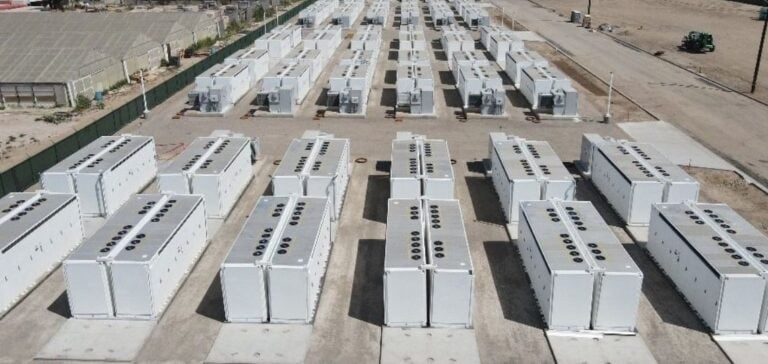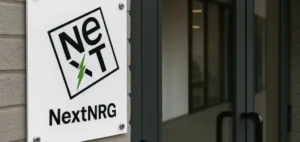California’s renewable energy sector reaches a significant milestone with the inauguration of the Condor project by Arevon Energy Inc.
Located in San Bernardino County, this energy storage project has a capacity of 200 megawatts (MW) and 800 megawatt-hours (MWh), capable of supplying electricity to around 150,000 homes during periods of high demand.
Importance of the Condor project
The Condor project plays a crucial role in integrating energy storage technologies to support California’s energy transition. With more than 400 MW of operational storage capacity in the state, Arevon reinforces its status as a leader in renewable energy management.
Kevin Smith, CEO of Arevon, emphasizes that this project is critical to ensuring the reliability of the electric grid and facilitating the increased adoption of renewable energy.
The project also offers significant economic benefits to the region.
It is estimated that it will generate $25 million in property taxes over its lifetime, supporting San Bernardino County and the local school district.
Local economic benefits are also enhanced by the hiring of local workers for the construction and maintenance of the facility.
Technology and partnerships
The Condor project uses Tesla’s Megapack 2 XL, a state-of-the-art energy storage technology.
This system offers optimum safety and protection for both the project and the surrounding community.
Tesla is also responsible for the operation and maintenance of this installation, ensuring reliable and continuous performance. Southern California Edison (SCE), one of the country’s largest electricity providers, purchased the project’s capacity under a long-term agreement, guaranteeing clean, affordable energy for the future. Rosendin Electric, Inc.
led the engineering, procurement and construction aspects, working with several local syndicates to complete the project.
Community involvement and education
Arevon demonstrates its commitment to the local community not only through its economic contributions, but also through its educational initiatives.
At the inauguration, the company made donations to several local organizations and collaborated with Grand Terrace High School to create a 15-foot metal sculpture, showcasing students’ design and welding skills.
This initiative is part of Arevon’s wider commitment to investing in local education and infrastructure, with a $200,000 contribution towards improving school facilities.
This investment in students’ future reflects the company’s holistic approach to sustainable development and social responsibility.
The Condor project is an emblematic example of how energy storage projects can not only strengthen the resilience of the power grid, but also deliver tangible benefits to local communities.
By combining advanced technology, strong partnerships and community involvement, Arevon is leading the way towards a more sustainable and inclusive energy future.





















